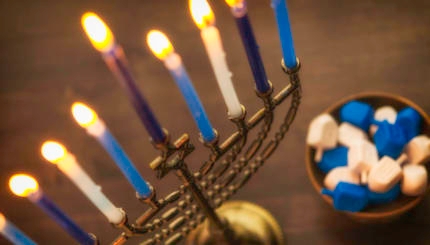Since Rosh Chodesh, the first of the month, from which the festivals of the month are counted, could be either on the 30th day of the previous month or on the 31st day, this meant that there was always a doubt as to which day had been declared Rosh Chodesh and hence from which day the festivals falling in that month were to be counted.
For the Jews of Palestine there was no problem. There was time to inform them before the festival. But the Jews of the Diaspora, who lived too far away for the communication to reach them, had to keep the two days as a festival in order to be sure that they were keeping the right day. Even the Jews in Palestine kept the festival of Rosh Hashanah for two days, since this day coincides with the beginning of the month. Unless they lived adjacent to the court they, too, would not know which day was the day of the festival and they, too, kept two days.
Once the calendar was standardized in the fourth century there was no longer any doubt about a holiday’s timing, but the Talmud states that the Diaspora Jews were urged by the Palestinian authorities to continue to keep the two days, as did their ancestors. There was considerable debate whether this applied to the keeping of two days of Rosh Hashanah in Palestine, but the standard Orthodox practice is to keep the two days of the [other] festivals in the Diaspora and the two days of Rosh Hashanah in Israel. There is much discussion regarding the position of a Diaspora Jew on a visit to Israel for one of the festivals and that of an Israeli who pays a visit to a Diaspora community. Does he follow the practice of the place he comes from or that of the place where he is staying on the festival?
With your help, My Jewish Learning can provide endless opportunities for learning, connection and discovery.
The three festivals affected by the second-day problem are: Passover (in the Bible to be observed with the first and seventh day as a full festival); Shavuot (in the Bible to be observed as a one-day festival); and Sukkot (in the Bible a festival on the first day and on the eighth). Jews in Israel follow the times laid down in the Bible, but Diaspora Jews celebrate Passover for eight days, the first and second and seventh and eighth, as full festivals; two days of Shavuot; and the first and second days of Sukkot and the eighth and an additional ninth day.
Called Hol HaMoed, the intermediate days of Passover and Sukkot have the status of a festival but of a lesser kind. Reform Jews do not keep the second days of the festivals, and some Conservative rabbis have argued for their abolition in order to bring the Diaspora into line with Israel. Conversely, some Reform congregations have reintroduced, for the same reason, the observance of a two‑day Rosh Hashanah.
Reprinted with permission from The Jewish Religion: A Companion, published by Oxford University Press.
Rosh Hashanah
Pronounced: roshe hah-SHAH-nah, also roshe ha-shah-NAH, Origin: Hebrew, the Jewish new year.


